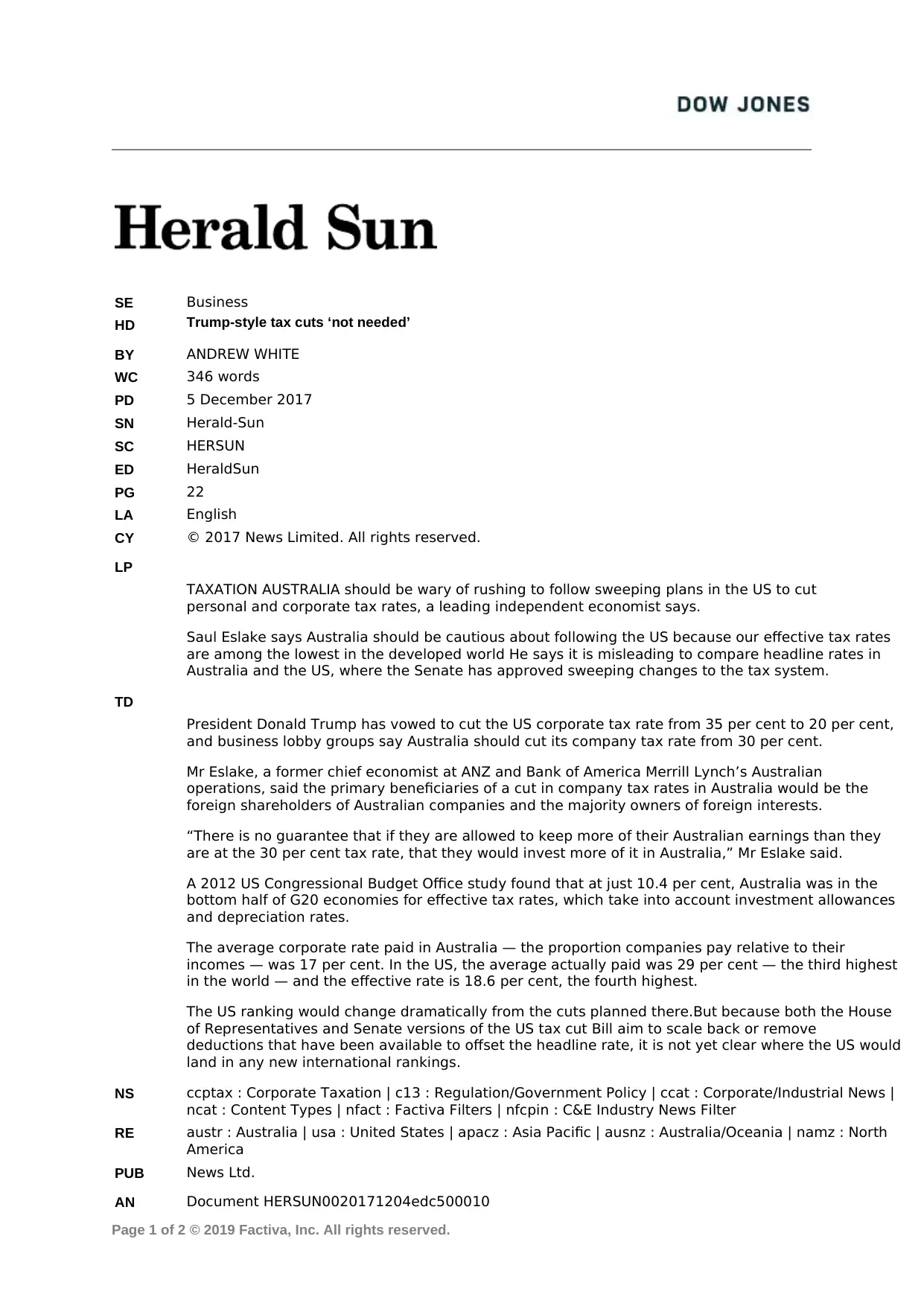Curtin University Finance: Tax Article Review Assignment, May 2019
VerifiedAdded on 2023/03/17
|2
|493
|44
Homework Assignment
AI Summary
This assignment is a review of a Herald-Sun article discussing the potential impact of US-style tax cuts on the Australian economy. The article, authored by Andrew White, features the views of Saul Eslake, a leading economist, who expresses caution about blindly following the US approach. Eslake argues that Australia's effective tax rates are already among the lowest in the developed world and highlights that the primary beneficiaries of company tax cuts would be foreign shareholders. The article references a 2012 US Congressional Budget Office study and provides comparative data on effective and average corporate tax rates in Australia and the US. The assignment highlights the complexities of the Australian taxation system and the various taxes and organizations involved, as well as the government's reliance on taxation revenue. The article was sourced from the Factiva database, following a search based on the assignment brief's criteria. The assignment was completed for a Finance module at Curtin University and is available on Desklib.
1 out of 2






![[object Object]](/_next/static/media/star-bottom.7253800d.svg)